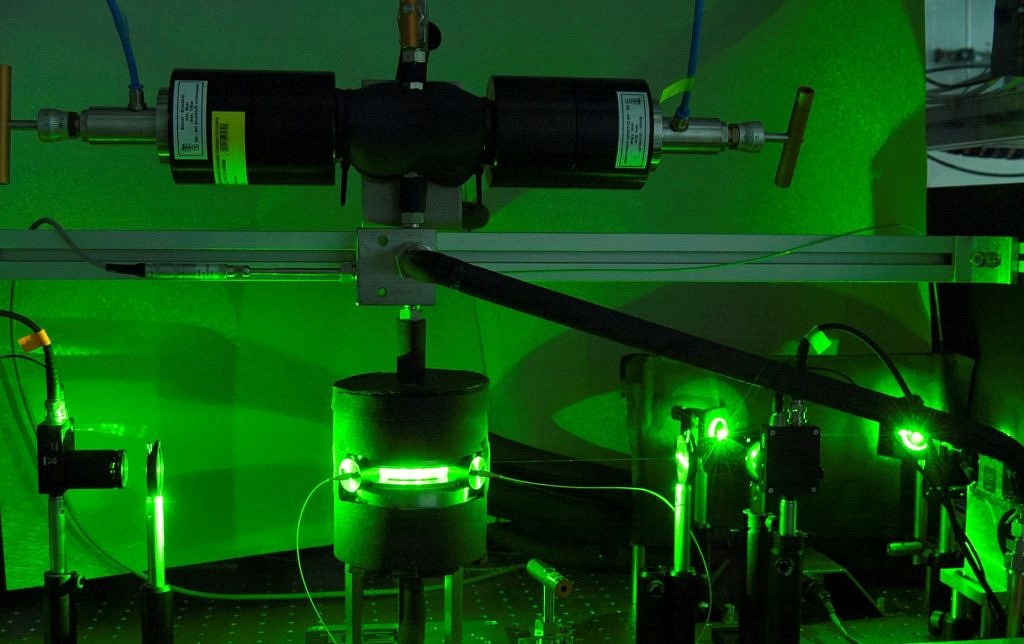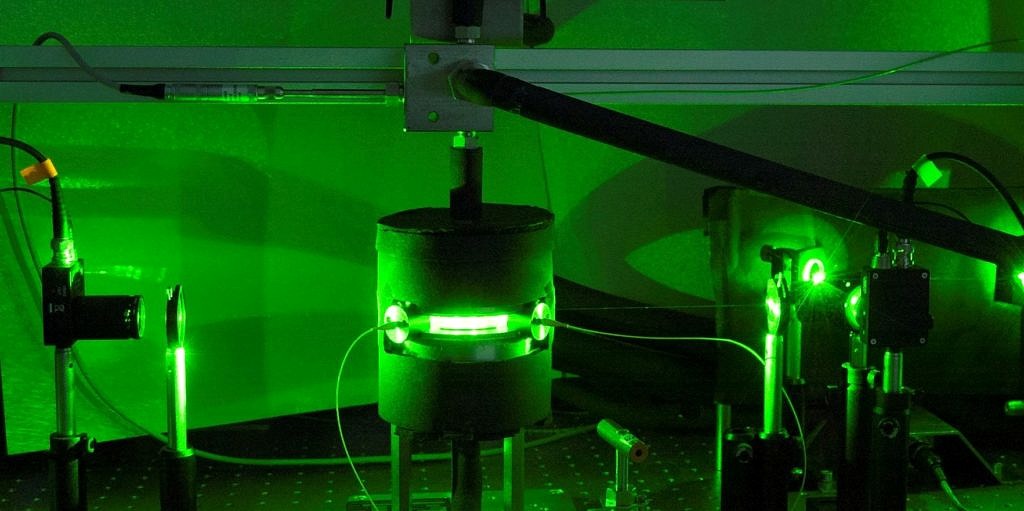In this research topic we want to investigate the formation of gas hydrates from the volume phase and the growth of cavities in an early stage by Elastic Light Scattering. To that end the transmitted light and the angular dependent scattered light is detected. The high pressure measurement cell exhibits an optical access of 180°, allowing for the detection of scattering signals from 15° to 165°.
In contrast to other groups, which mainly analyze the formation of gas hydrates starting from interfaces or by addition of additives, the focus in this project is on the formation from the volume phase, a single-phase water-CO2-mixture under quasi stationary conditions. This allows for the investigation of specific conditions and early stages of formation processes. The time dependent detection of optical signals under different measurement angles provides information about the size distribution and kinetics of gas hydrate formation and growth. The measurement setup comprises various high pressure components and can be operated up to 700 bars.
The capability of hydrate formation of water-CO2-mixtures with different concentrations under varying pressure and temperature can by analyzed with this technique. By simultaneous detection of pressure and optical signals differences in the sensitivity of the techniques can be determined.


